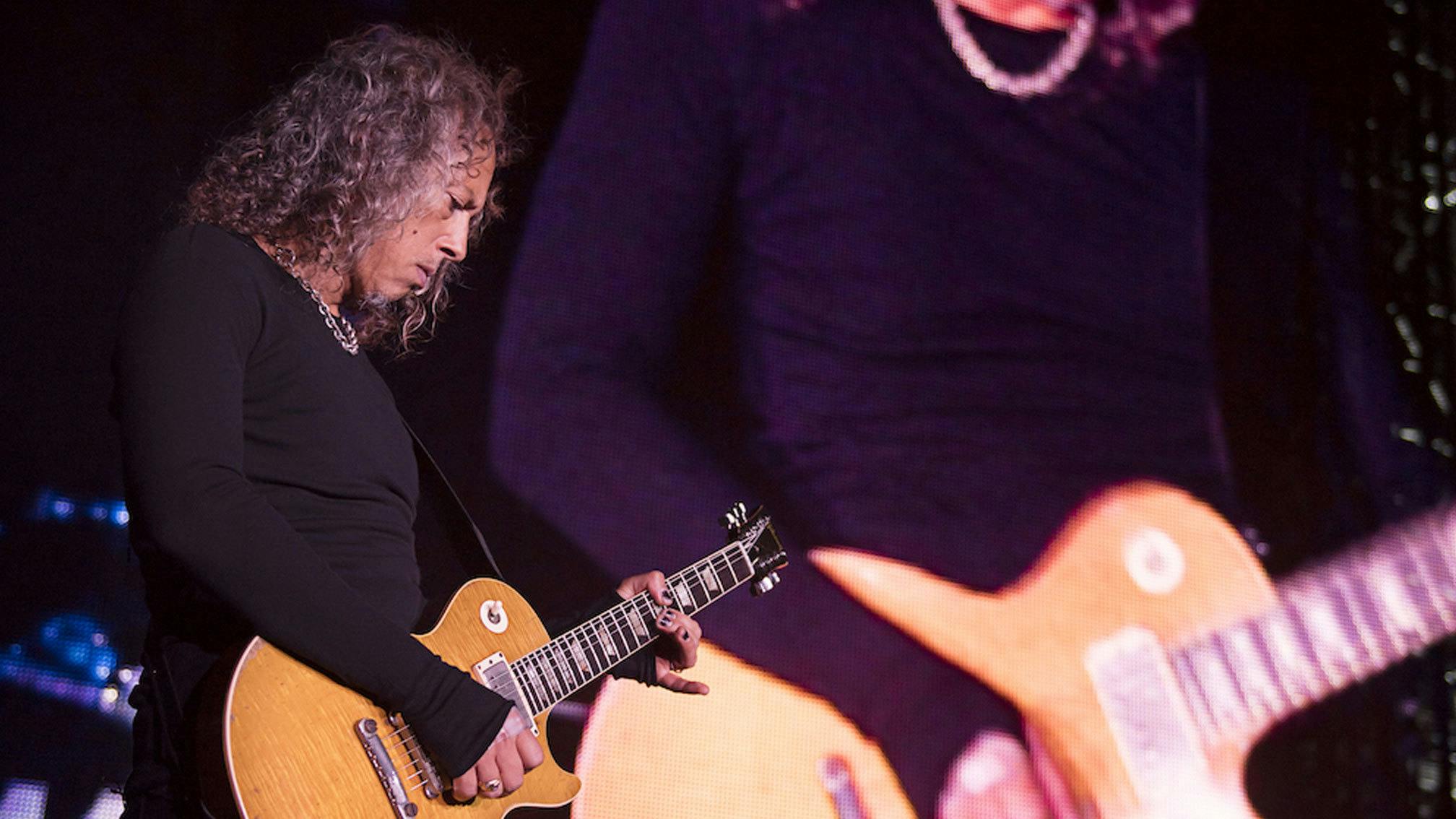This past Record Store Day, Kirk Hammett will released his first ever solo EP, almost four decades after making his recorded debut with Metallica. His regular bandmates weren’t always so accepting of extracurricular activities of course – bassist Jason Newsted was infamously ousted from the band after his requests for a bit of time off to focus on side-project Echobrain were rebuffed.
But that was then, and this is now. As the guitarist himself points out, it would take a lot to pull focus from the megalithic machine that is Metallica in 2022 and certainly more than four-track EP Portals, as fantastic and beguiling a record as it is. The project started life as a single song, called Maiden And The Monster, that Kirk recorded to soundtrack his It’s Alive! exhibition of horror movie memorabilia. Like a suitably monstrous creation it took on a life of its own, blending cinematic atmosphere with an orchestral sweep and a touch of the heaviness that by now has probably seeped into his DNA.
Here, Kirk talks to Kerrang! about Portals, the impact of his sobriety and Metallica’s Pavlovian response to Ennio Morricone…
How did the Portals EP grow out of the It's Alive! exhibition?
“The first song [Maiden And The Monster] came straight from the exhibition. With the second song [The Djinn] I tried to write something really simple but when I sat down again with the initial idea it grew into a major piece because the ideas just kept coming. I took it like, 'Okay, there are musical ideas resonating and it wants to become more than one musical idea.’ With enough ideas it becomes a song or an instrumental or whatever it needs to be. So the same thing happened with The Djinn as happened with Maiden And The Monster and I just threw up my hands and said, 'Wow, I don't know what's happening, I have two instrumentals and I'm just sitting on them.’
“Then when I met Edwin Outwater [the conductor who worked on S&M2] I played it for him and said, ‘Let’s get together and write some more of this sort of stuff,’ he was so into it. We went through it all and that became High Plains Drifter and The Djinn. This wasn't something where I sat down and said, ‘Okay, solo album, it's about time!’ I don't take myself that seriously! And I'm not that intelligent, I'm seriously not. I write music and shit happens… and this falls under the category of shit happening (laughs). But now that it has happened, I've gotten a taste of this and this sort of autonomy, I'm thinking, ‘Why not?’ I have the full band's blessing on this, particularly James [Hetfield] and Lars [Ulrich] and so it's okay, now I have something else cool to do. Edwin and I have every intention to keep on collaborating as well, because the results have been so great.”
